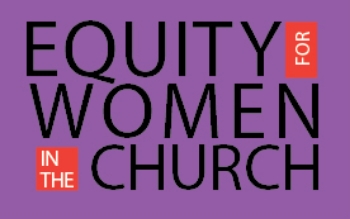Post author Rev. Dr. Courtney Pace is the Prathia Hall Scholar-in-Residence for Equity for Women in the Church. She is author of Freedom Faith: The Womanist Vision of Prathia Hall (University of Georgia, 2019) and Beyond Eden: Sermons and Essays of Prathia Hall (University of Georgia, 2022), as well as numerous journal and encyclopedia articles, book reviews, and peer-reviewed book chapters. She lives in Memphis, TN with her husband and children.
Here’s how A Marginal Majority came to be. There are several of us who research women in Baptist history. We enter from different points, but we gravitate particularly around Baptist women: what they believe, how they behave, how they adapt, how they organize, and how they think. In the summer of 2013, we gathered in Eugene, Oregon to share our research and plan collaborative publication. Countless conference panels and roundtables emerged, as well as two edited volumes, one of which is A Marginal Majority: Women, Gender, and Reimagining of Southern Baptists.
This book reimagines Southern Baptists by starting from women’s narratives, from organizations to periodization to theology. By removing the scholarly frameworks that have for so long limited our imaginations, we created an entirely new way of engaging Baptist history, rooted in women’s agency. This approach uncovered new boundaries, new structures, new metrics by which to examine Baptist history. The numerical majority of Baptists, yet marginalized from leadership, women have been shaping Baptist life and practice from the sidelines and sometimes the shadows. Arranged chronologically, each chapter focuses on a particular way that women shaped Baptists, and in some cases, shaped American religion.
Across time and space, Baptist women have rallied around their concern for families, children, and communities. They have supported foreign and domestic missions, education, health care, biblical literacy, spiritual formation, chaplaincy, and a host of political issues relevant to these including religious liberty, racism, and equal rights for citizenship and voting. Each chapter zooms in on a moment in time in which Baptist women create Baptist identity, practices, and beliefs, in spite of patriarchal dominance. In some cases, these women attained formal leadership positions and, consequently, influence over denominational direction and resources. In other cases, they operated via popular authority. In all cases, they pushed limits, broadened boundaries, and rooted Baptist practice in the collective discernment of the people rather than the agendas of its officers.
My chapter, for example, follows Baptist mega-star Beth Moore, made famous by her Bible study workbooks and chapter books, which led to packed-out stadiums across the country. Moore celebrated the gender hierarchy while simultaneously functioning as a woman preacher in the SBC, and for years, I've been suggesting that it had to crumble at some point. During the 2016 presidential campaign, Moore's public criticism of Republican-frontrunner Donald Trump cracked the foundation, and her increasing awareness of the willingness of the GOP to tolerate sexual assault for the presidency opened her eyes to the willingness of the patriarchy to accept harm to all women if deemed justifiable by the means. Through social media, she intensified her separation from the evangelical-GOP alliance and realized she had enough popular authority to maintain her public ministry without the blessing of the SBC. The #MeToo movement ushered Moore into removing her blinders (well, some of them), recognizing her own call to preaching and ministry leadership, and recognizing her complicity with patriarchal dominance. I started this research in 2008, and every time I thought I had finished the chapter, she would push boundaries a little farther. In rare form, I'm delighted that the volume had publication delays, as it allowed me to continually revise the chapter with Moore's latest tweets and posts, until the beautiful moment when the ending I anticipated occurred: she admitted she's been preaching and affirms the spiritual gifts of women; and she had to separate from the institution that raised her to be her true self.
Marginal Majority is a welcome read for scholars, but also for Baptists generally who are interested in making sense of their own experiences as well as of Southern Baptist women. The essays are accessible enough for lay readers, yet scholarly enough for seminary or graduate study. A book club or Sunday School class could mix up their normal routine by selecting essays to discuss.
For those committed to gender equity and smashing the patriarchy who are not Baptist, this book is an opportunity to better understand what that battle looks like for Baptists even as you imagine and continue advocating for justice in other contexts.
I need to conclude with a final word about how the book came to be. Part of Baptist identity is the value of the community. Doing Baptist scholarship is no different. We needed (and still need) each other to do the work, and we are better when we work together. We keep finding ways to be in the same physical spaces, from conference panels and roundtables to family vacations to sabbatical research travel, because we need each other’s community to continue the scholarship. The self-proclaimed GAs Gone Bad have become a kind of congregation with each other, led by our Baptist foremothers, and opening the doors wide for more to come alongside and behind us. Our liturgy is to share our research and bibliographies, affirm each other, and complexify our methodologies.
Click here to purchase A Marginal Majority


